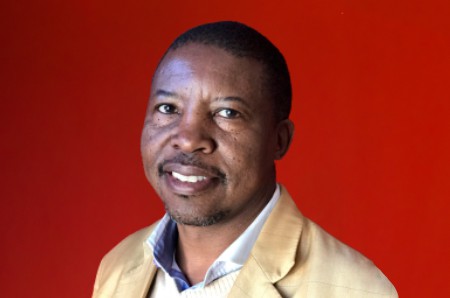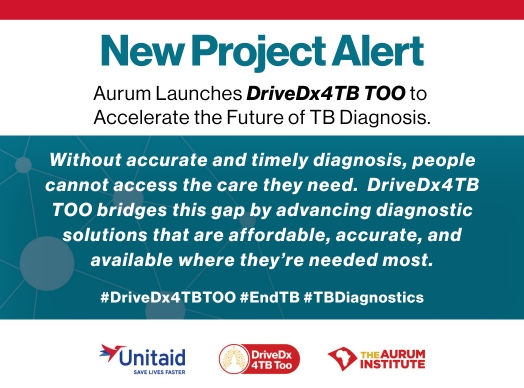“The progress made in TB prevention and care should not reversed by the COVID-19 pandemic,” says Professor Geoffrey Setswe, Aurum's Managing Director: Implementation Research Division. Speaking at a virtual roundtable to discuss reducing the impact of COVID-19 on people living with HIV and TB, he said; “it is critical that people who need TB treatment continue taking it even if they acquire COVID-19.”
The roundtable was hosted by South African National Aids Council (SANAC) on Wednesday, and aimed at actively seeking knowledge on the interaction of HIV and / or TB with Coronavirus (COVID-19) in countries and communities responding to these epidemics.
Setswe called for the continuity of essential services for people affected with TB during the COVID-19 pandemic. “This should be driven by innovative people-centred approaches, as well as maximizing joint support to tackle both diseases.” This is done by ensuring TB programme staff share knowledge, expertise, technical and logistical support in active case finding and contact tracing. There should be proactive planning, procurement, supply and risk management and capacity building of health workers who in turn should familiarise themselves with the most current World Health Organisation (WHO) recommendations for the supportive treatment and containment of COVID-19. This is being practiced by Aurum staff supporting the Department of Health’s national TB and HIV programmes around the country.
Setswe said while experience on COVID-19 infection in TB patients remains limited, it is anticipated that people with both illnesses may have poorer treatment outcomes, especially if TB treatment is interrupted. “People with COVID-19 and TB show similar symptoms such as cough, fever and difficulty breathing. Both diseases attack primarily the lungs. Although both biological agents transmit mainly via close contact, the incubation period from exposure to disease in TB is longer, often with a slow onset.” Setswe believes early diagnosis of both TB and COVID-19 is important in the care of people who are vulnerable to unfavourable outcomes, including death. “We need to ensure that the diagnostic needs of TB patients are not neglected while COVID-19 testing is rolled out. Finding and treating people with TB remain the fundamental pillars of TB prevention and care and those would require maintained attention,” he said.
Other speakers included Gauteng Health MEC Dr Bandile Masuku, who spoke about the importance of integrating HIV, TB and COVID-19 on the health response. SANAC CEO Dr Sandile Buthelezi’s outlines the implications of COVID-19 for health systems and Anova CEO James McIntyre looked at ways to reduce the COVID-19 impact on key populations. Mbulawa Mugabe, UNAIDS Country Director, presented the lessons learned in HIV and TB and what they can teach us about COVID-19. SANAC co-chair Steve Letsike tackled the same topic but from a community perspective with Andrew Mosane speaking as a human rights activist.














